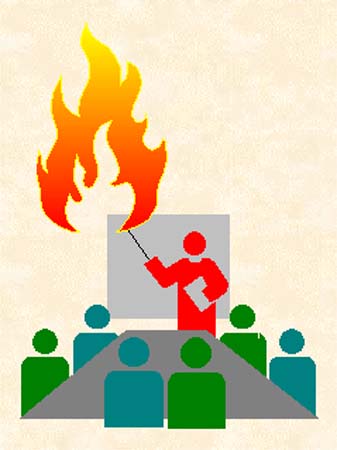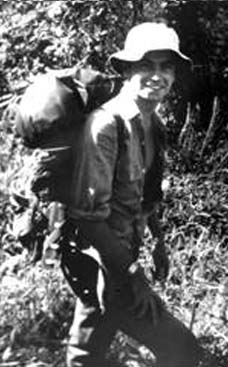
What are the three stages of alert? Standfast - stay at site, keep low profile; Consolidation - go to pre-arranged assembly point, contact PC office, prepare for withdrawal; Evacuation - leave assembly point, proceed to safe haven.
Crisis Management: The Emergency Action Plan (EAP) Training for Peace Corps Volunteers and the three levels of alert (standfast, consolidation, evacuation)
We are all painfully aware that so much information comes across our desks that we hardly have time to give it a cursory glance. When we consider the sheer volume of written material heaped upon Trainees at PST it’s a wonder they can slog through it all during their two year Volunteer service! Somewhere among this onslaught of paper the Emergency Action Plan is distributed to Trainees, most of whom will file it away without a second thought. And therein lies the rub. Without some orientation to the EAP, it will remain forgotten gathering dust in a box beneath the Volunteer’s bed. In several recent evacuation debriefings, Volunteers have emphasized the need to be familiar with the EAP before the crisis occurs. Many posts have included some orientation to the EAP as a session in Pre-Service Training. A possible module for PST presentation, gleaned from many discussions with Volunteers, trainers and staff, follows:
Learning Objectives
By the end of this module the participants will be able to:
1. Define standfast, consolidation and evacuation stages;
2. Identify the consolidation point for their prospective site;
3. Describe at least two routes from their prospective site to their consolidation ?assembly points;
4. List the contents of an evacuation bag;
5. Provide specific emergency contact information at their prospective sites.
Key Learning Points
* The EAP is an important resource for every Volunteer;
* Every Volunteer has the responsibility to ensure their emergency contact information is accurate and up-to-date;
* The EAP is no substitute for common sense and good judgment;
Session I 45 minutes
A week prior to the scheduled Trainee site visits, distribute post EAP to Trainees instructing them to read through it and prepare to answer questions at a future session. A day or two before the scheduled visit convene "EAP Orientation" session, an open-book discussion. Ask participants the following questions:
What is the purpose of the EAP?
* To prepare for, mitigate, respond to and recover from a crisis situation.
What emergencies are identified in the EAP?
* medical emergency, family crisis, political instability, civil unrest, natural disaster.
What are the stages of alert? Please define them.
* standfast - impending emergency, stay at site, keep low profile
* consolidation - go to pre-arranged assembly point, contact PC office, prepare for withdrawal
* evacuation - leave assembly point, proceed to safe haven
Using the EAP as a reference have each participant find her/his prospective site and consolidation assembly point on a large country map. Which participants share the same assembly points? What information about the assembly point can the participants derive from studying the EAP and map? What are two possible routes from site to assembly point? What other information would they want to have? Where/to whom would they go to get it?
Distribute blank site locator forms to participants.
Why are site locator forms important?
* provide emergency contact information
* include detailed map in case of emergency transportation
* lists local support resources (clinic, police, other PCVs)
* incorporated into the EAP communication network
Emphasize the importance of keeping the site locator forms up-to-date and remind participants that it is their responsibility to do so.
Ask for any additional questions.
Session II 45 minutes
During the pre-site visit sessions incorporate the following exercises into the Trainees’ visit activities.
If the site locator forms have already been completed for prospective sites, provide each Trainee with a copy instructing them to verify:
* identity of contact persons and means of contact (tel., radio, etc.)
* accuracy of map
* location of clinic, police post, school, other support facilities
* standard housing criteria (doors, windows, locks, burglar bars, etc.)
If site locator forms have not been completed for prospective sites, provide the Trainees with blank forms and have them take a first cut at gathering the information listed above.
Debriefing. When Trainees return from site visit, gather feedback from them on the tasks outlined above.
o Which tasks proved difficult? Why?
o What did you learn that surprised you?
o Which training needs do you now feel need more attention?
Exercise. The participants will need their EAP and site locator forms during the exercise. Distribute scenario and list of questions (you may find it more appropriate to develop your own scenario).
Scenario. Imagine that you are now a PCV at your site. While you are preparing for a workshop scheduled to begin the next day (your first "big" activity), a local driver arrives at your site with a letter from the Peace Corps office that instructs you to immediately travel to your consolidation point.
Using your EAP and site locator form as references, take 15 minutes to describe how you would proceed. List at least 5 tasks.
o conduct property inventory
o pack emergency evacuation bag (list contents)
o inform counterpart to postpone workshop
o inform host family
o lock house arrange for security during absence
o travel immediately to consolidation assembly point (describe route)
o notify Peace Corps immediately upon arrival at consolidation assembly point
Ask participants to report out. List tasks on flip chart.
Ask for any additional questions.













